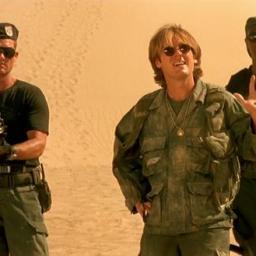On September 15, 1995,
Hackers was released in the theaters to a relative thud, recovering less than half its production budget at the box office. But the tale of a group of high school hackers-with cool-sounding hacker handles like "Zero Cool" and "Acid Burn"-stumbling upon a grand corporate conspiracy found a second life on home video,
becoming a cult classic two decades later.
Directed by Iain Softley the film is all sorts of dated. There's some unknown punk named Angelina Jolie, the nebulously famous Fisher Stevens. Matthew Lillard's in it, and so is Marc Anthony. Everyone rollerblades or skateboards. Visually dazzling and oddly optimistic, Hackers is more than a cheesy techno-thriller from the mid '90s, it's a smart, energetic story about teenage rebellion with a genuine interest in what was once a small but thriving subculture.
The Internet and technology have changed greatly since Hackers' release, yet even with 20 years of technological progress, code still doesn't float around your screen as mathematical functions in 3D. And the prominently featured payphones, floppy disks, acoustic coupled modems, techno-arcades and pagers are becoming a bit difficult to find for today's aspiring hackers.
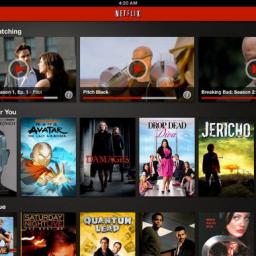
Now that Amazon Prime is allowing
offline video playback on iOS and Android devices, Netflix needs a better explanation for why it won't do the same. Previously, Netflix has argued that fast, ubiquitous Wi-Fi access would eventually make offline playback irrelevant. But in 2015, on-the-go users still struggle with getting connected, whether it's on a plane with Wi-Fi that's too slow, or in a car where a few hours of streaming on mobile broadband can burn through your data cap.
Unfortunately, Netflix's new excuse is even worse. Speaking to Gizmodo, Netflix Chief Product Officer Neil Hunt argued that
offline playback is just too complex for people to handle. He described this as the "Paradox of Choice," explaining that when you give people too many options, they end up not choosing anything at all. Netflix apparently believes offline playback would result in this sort of paralysis. In lieu of crippling users with choice, Hunt said Netflix could install local media servers on airplanes, trains, or hotels, so users can stream without an Internet connection. Can Netflix really install its entire catalog in local servers on every means of public transport? Besides which, Netflix is still talking about things it would like to do in theory, while Amazon is providing a service that's actually useful right now.
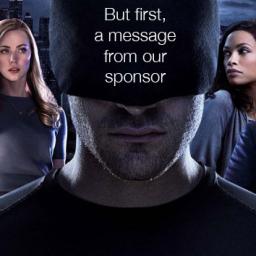
Netflix has confirmed that it's publicly testing ads (for now just trailers for Netflix-original series) both before and after shows. What you see as a test subject varies in length and whether or not it's skippable, so it's not certain just how tolerable these promos would be. However, Netflix is quick to note that a lot of things are up in the air, and that you might not see these clips at all
However, the ad trial is likely meant to open the door to new pricing options that do more than tweak the number of simultaneous streams. Netflix could offset price hikes (and undercut streaming rivals) by launching a cheaper, ad-supported tier; alternately, it could compensate for slowing growth by
asking you to pay more for ad-free viewing.
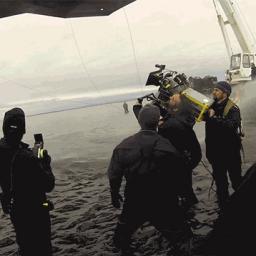
Today, nearly all movie theaters have converted their projectors to fully digital systems. Although movie theater 4K (4096 x 2160) is a little higher resolution than consumer TV 4K (3840 x 2160) - and definitely an improvement over standard HD (1920 x 1080) - nothing can match the resolution and shear awesomeness of 70mm IMAX film projection. Christopher Nolan is one of the last true
film holdouts and with his new movie
Interstellar, is pushing for the full "
film only" versions to be shown across IMAX theaters.
Bottom line: this is one movie you probably want to see in the theater. Otherwise you won't get to see its true glory until 30 years from now when the industry starts selling 32K resolution digital TVs.
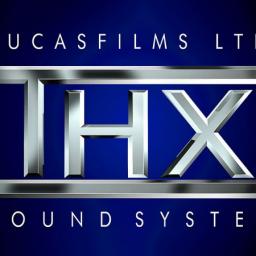
So you've just settled into your seat at the movie theater, and as the film starts to roll it begins with an advertisement for the THX Sound System, accompanied by a sound that's
recognizable in a heartbeat, but a bit hard to describe in words [mp3]. That sound is called Deep Note. It was created in 1982 by Dr. James A. Moorer, who used the Audio Signal Processor (ASP), also known as
SoundDroid to create it.
The ASP was a complex machine to program and included about 20,000 lines of C code to program. Only one ASP was ever produced, and LucasFilms LTD owns it. So what do you do if you're an enterprising hacker interested in blowing the covers off your speakers at home by replicating that sound?
You build your own .
Read more at
Hackday.com .
Last september J.K.Rowling and Warner Brothers
announced a spin off of Harry Potter based on the book "Fantastic Beasts and Where to Find Them." The book takes place 70 years prior to the Harry Potter events, is not a prequel, and contains a more lighthearted comedy than the serious overtones of the Potter books.
New information from the studio notes that three mega-movies are planned. Thus, W.B. adds to the growing trend of milking a trilogy of movies from one book.
The
Cord Cutting movement , in which people choose to do away with cable TV packages in lieu of entertainment provided over the Internet, seems to be picking up the pace. In 2013, the number of American cable TV subscribers dropped for the first time ever, and by the impressive amount of 105,000.
A recent report by the Leichtman Research Group finds that the top nine cable companies lost about 1.8 million video subscribers in 2013 (more than they lost in 2012), while other providers gained some users, for a total (net) loss. 2013 was the first year numbers dropped.
Just a blip on the radar? Or the beginning of something more?
This Sunday,
a reboot of Carl Sagan's "Cosmos" will premier on Fox. PBS aired
the orginal series in the 1980's.
From the article:
Based on a preview of the first of 13 episodes, "Cosmos: A Spacetime Odyssey" is certainly trippy and visually dazzling, but it's also a big-thought-provoking series crammed with scientific and historical fact.
In an age when too many TV documentaries succumb to reality-style formats, and when so many reboots of old shows are little more than ratings ploys, and when special effects obscure or replace substance, MacFarlane and his partners have kept their eyes on the value of the material. They have created something that arouses wonderment, despite the fact that it's airing in prime time, in front of mainstream viewers.



